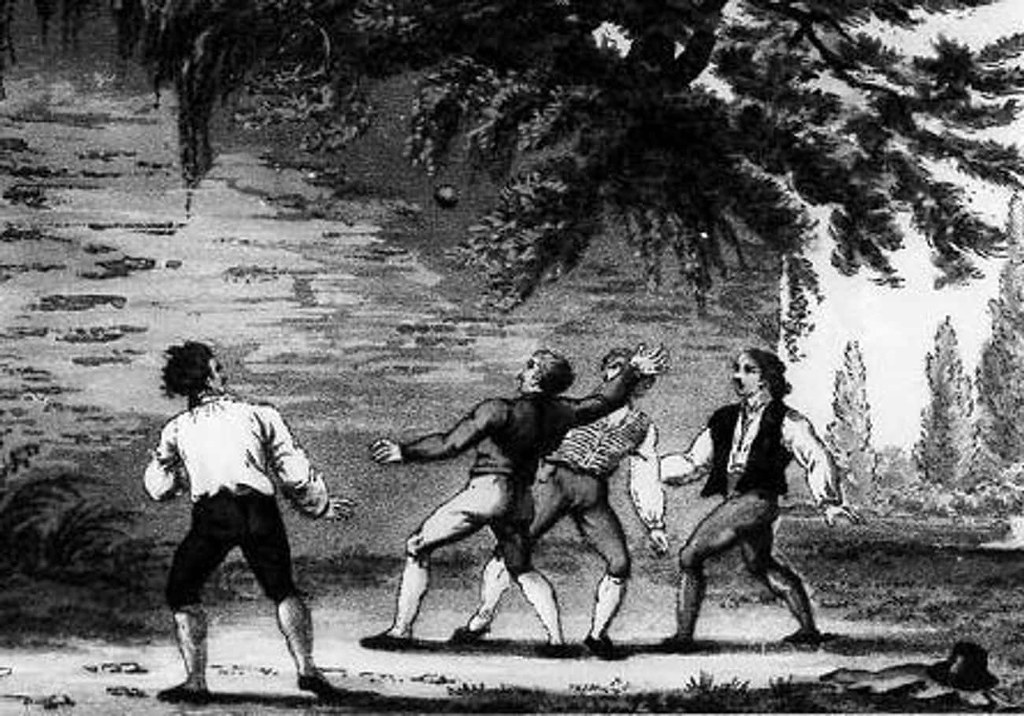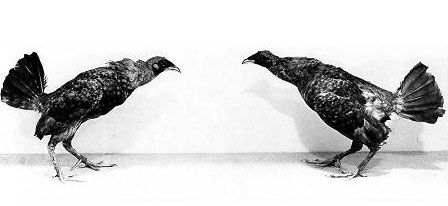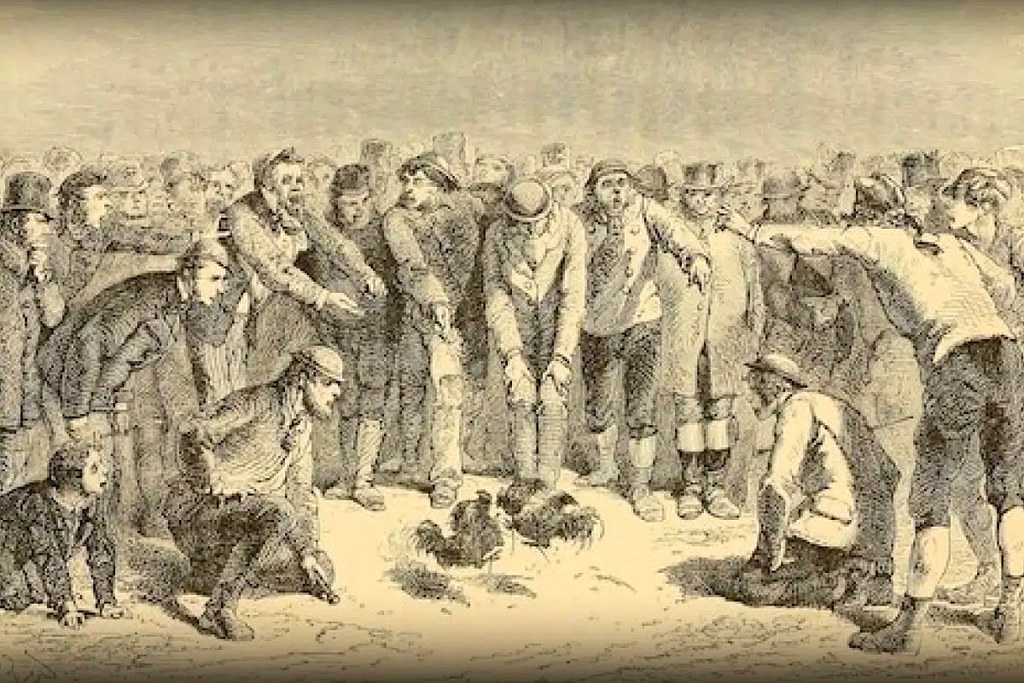
Today is Gŵyl Mabsant, which is an old Welsh holiday that hasn’t been widely observed there since the 1860s, so it’s been gone for some time. But maybe it’s worth bring back. It certainly sounded interesting, especially when one article referred to it as “A Drunken Welsh Mini-Olympics,” and described it thusly:
The Welsh holiday of Gŵyl Mabsant, which celebrates a local parish saint, hasn’t been properly celebrated since the end of the 19th century. It’s a damn shame, too – the whole thing sounds like a blast, with highly unorthodox athletic competitions such as blindfolded wheelbarrow-driving, “fives” (a squash-like game, pictured, played against the church walls), and something called “old women’s grinning matches.” There was also football, bando (a field hockey-like game), and, unfortunately, cockfighting. The mix of alcohol, gambling, and crazy games gave the holiday a bad reputation, ultimately getting it shut down by religious leaders.

And this account is from the Museum of Wales:
The gŵyl mabsant was one of the most popular rural festivals in Wales. Commemorating the local parish saint, this annual celebration developed from a dedication through prayer to a programme of recreational activities, enjoyed by all.
Gŵylmabsantau was mentioned in writing as early as 1470, and the festival was common throughout Wales up until the end of the 19th century.
From cockfighting to grinning matches
Competitions at the festivals ranged from running races to old women’s grinning matches and blindfolded wheelbarrow-driving. At the three day sports event held in Llangyfelach near Swansea in 1780, competitions and prizes included a women’s race for a smock and petticoat and eating a hot pudding for a silver table spoon. Animal sports were a familiar scene, particularly cockfights, on which large amounts of money were wagered. Birds were specially trained for the contest, and the owner of a victorious cockerel was held in high esteem.
Early versions of Association Football were often played over Christmas, New Year and at Shrovetide. Large crowds of spectators gathered to witness the matches, which, owing to a lack of pre-determined rules, tended to degenerate into chaos, with injuries being common.
Bando
Bando was another favoured team sport and continued in some areas until the late 19th century. Particularly popular in Glamorgan, bando was similar to the modern game of hockey and teams used clubs to strike the ball towards a goal.

A rowdy reputation
Owing to the combination of betting, feasting and alcohol consumption, it was not surprising that parish festivals built-up a reputation for their rowdiness. Publicans often played a significant role in organising and promoting sports events, many being arranged over the bar. The games contested were high-spirited and unwritten rules were often decided informally before the start of a match. As many sports were localised activities, rules usually differed from place to place, leading to disagreements between parishes.

Concern regarding the unlicensed revelry and alcoholic over-indulgence commonly occurring at the festivals, as well as the doubtful benefits of the games themselves, was increasingly voiced from the 18th century onwards, most noticeably by religious leaders.
Worthless and sinful
The Methodist and other religious revivals which swept across Wales from the mid 18th century until the turn of the 20th century, attacked sporting activities indiscriminately as worthless and sinful. Physical recreation was viewed by some as a great threat to the morals of the population. Eminent religious figures, such as Thomas Charles, tried to suppress impious fairs and festivals, in 1799 he described Wales as “sunk in superstition and vice”. Consequently, parishioners turned increasingly to churches and chapels for release and salvation, and as prayer meetings were sometimes purposely arranged to clash with sports days, religion became a potent force in the eventual decline of the Gŵyl Mabsant.

And this one is from Cracked:
Looking back at some historical holidays, we kind of got an unfair deal. We get Arbor Day, a day theoretically dedicated to trees but practically dedicated to nothing, and Columbus Day, a day celebrated by people trying to defend a racist on the internet. Meanwhile, we don’t get Gwyl Mabsant.
Gwyl Mabsant means “Feast of the Patron,” and it, appropriately, was a religious festival that honored a parish’s patron saint. While it was intended to be a time of prayer, Gwyl Mabsant experienced a major shift around the time of the Reformation. This took away much of the religious context from the festival and replaced it with partying that would make any frat boy jealous.
The true saint of Gwyl Mabsant was booze, and this more popular version of the festival involved days of drinking and participating in sports and games. Contests like eating hot pudding and racing wheelbarrows while blindfolded would get a laugh out of Gwyl Mabsant attendees. Old women participated in “grinning matches,” which might be a version of gurning, an English contest in which people try to make and maintain the ugliest face possible. Drunkenly laughing at old ladies was probably as good a time as drunks were going to have in the days before beer pong and Waffle House.
Gambling was another major appeal to Gwyl Mabsant, and the main draw was cockfighting. Owners became stars of the festival and betting on the fights sort of became the main event.
Nothing screams “Feast of the Patron” like betting on which bird will kill the other.
Of course, between the gambling, drinking, and mocking of the elderly, someone was bound to ruin the fun. Like a resident assistant in a college dorm, someone had to come in and break up the party. In this instance, religious leaders began to object to the festivities associated with Gwyl Mabsant.Revival movements started pushing back against the festivals around the middle of the 18th century. Gwyl Mabsant didn’t survive in any form much longer, and now one of the most fun holidays but a small blip in the history books and a loss for WorldStar viewers.

